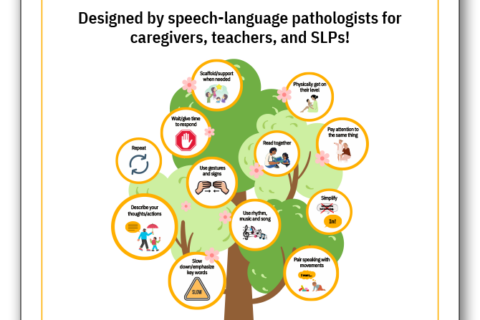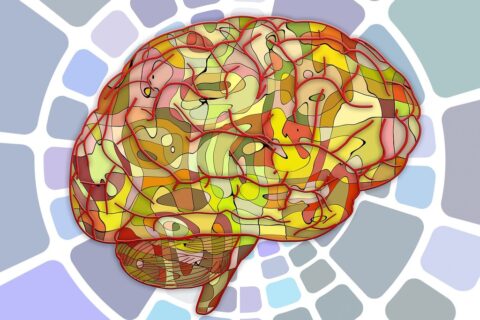Maintenance Programs for Speech Therapy
In the context of speech therapy or rehabilitation, a maintenance program involves specific activities or interventions that are implemented after the initial treatment or intervention phase. Its purpose is to prevent regression or decline and to support the long-term maintenance of achieved goals and outcomes. Learn more about what a maintenance program is and how it can benefit you.
What Is a Maintenance Program?
A maintenance program typically includes scheduled sessions and involves exercises and conversational practices tailored to your specific needs and goals. It aims to reinforce skills, habits, and behaviors learned during the initial treatment phase, ensuring their continued effectiveness and retention over time.
By following a maintenance program, individuals can sustain progress, prevent relapse, or decline due to a progressive disease, improve communicative confidence, and continue to enhance overall functioning and well-being. Maintenance provides ongoing support and helps individuals maintain and even exceed the initial benefits and improvements achieved.
Why Is Maintenance Important?
Like all forms of exercise, consistent practice is crucial for retaining functional improvements. One of the tenets of neuroplasticity holds, “use it, or lose it”. That being said, another important principle of neuroplasticity is, “use it and improve it!” Essentially, to help our brain to hold on to our abilities and strengthen neural connections, like all other muscles, it requires that we exercise specific skills to keep them strong, because it is through this continued practice that new neural synapses can be created (i.e., making new brain connections!) and sensorimotor map reorganization (i.e., creating new pathways to be able to perform skills more easily and quickly.) As a result, maintenance exercise increases endurance, strength, speed, accuracy, and, most importantly, naturalness and confidence!
For optimal management of progressive or acquired breathing/respiratory, voice, and communication symptoms, it is important to dedicate time to your consistent, specific exercise, primarily when symptoms are due to and underlying progressive or neurological disease process. The individually based exercises in your home program will vary based on the nature of your concerns as well as personal goals; however, in general, practicing for 10-15 minutes each day is usually sufficient.
How Often Should I See My Speech Pathologist During Maintenance?
Individual maintenance programs are conducted on a month-to-month basis with weekly sessions at a reduced frequency to ensure you can maintain gains from your initial program. Maintenance programs are also available with sessions once per month or on a quarterly basis so you can have periodic sessions throughout the year to check-in and re-calibrate to make sure you are continuing to meet your goals. This can also be an opportunity to update your home program and discuss any factors that may have changed since your program ended to ensure you are able to maintain your progress. Of note, for individuals with neurodegenerative conditions, intensive programs that shift to maintenance with weekly sessions once or more times per week on an ongoing basis are sometimes recommended. If you or a loved one experiences a neurodegenerative condition, speak with your speech pathologist to gain a better understanding of your particular needs to help achieve the best outcomes so you can improve overall quality of life and slow down disease progression.
What Other Maintenance Programs Does Open Lines® Offer?
Open Lines® recognizes that every individual’s speech and language journey as well as life circumstances are unique. That’s why we make every effort to design maintenance programs that are tailored specifically to you! We will help you maintain and exceed your unique goals so you can continue to excel in any personal, academic, or professional setting with ease, confidence, and joy!
Open Lines® is also proud to offer various web-based exercise maintenance groups. We know that learning or retraining any thinking or speaking skills requires consistent practice and dedication. We also understand that maintaining motivation to carry out daily exercises can become tedious, particularly in face of neurological conditions, such as Parkinson’s Disease or when recovering from a stroke. Multiple barriers, including those experienced due to pain and fluctuations in mobility, to medication side effects, and social isolation and decreased emotional wellbeing can impact adherence to a maintenance program.
For these reasons, Open Lines® offers two specialized groups: an LSVT LOUD for LIFE group and an Aphasia-specific Communication Group. Our LSVT LOUD for LIFE group is specially designed to help those with voice and motor-speech based difficulties, like those due to Parkinson’s disease and Atypical Parkinsonism’s. Our Aphasia Communication Group, on the other hand, is tailored to individuals who are retraining communication skills following a stroke or traumatic brain event. Both are led by a licensed, expert speech-language pathologist, each class lasting for 60 minutes.
While these groups are designed to exercise specific skills, they are also intended to help group members and their support system cope with the day-to-day realities of living with communication difficulties within a supportive and compassionate setting. We recognize that a welcoming and strong support system that addresses physical as well as emotional needs, friendship, and social connection are essential for maintaining motivation, managing stress, and living life with confidence, hope, and purpose.
To learn more about maintenance programs and groups, see our blog post Speech Therapy Classes for Groups.
If you’re struggling with communication difficulties, it’s time to turn to Open Lines®. Contact us via phone (212-430-6800), email [email protected], or by filling out our convenient contact form. Improve your communication skills and unlock your potential with Open Lines® Speech and Communication in New York today!
Get in Touch With Open Lines®














